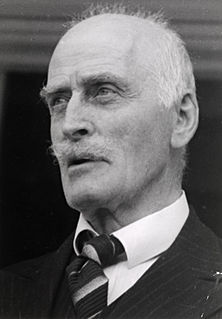A Quote by Andre Gide
Related Quotes
Then they began to say: 'Yes, but how can we know what is God's Word, and what is right or wrong? We must learn this from the Pope and the councils.' Very well then, let them conclude and say what they please, yet I will reply, you cannot put your confidence in that nor thus satisfy your conscience, for you must determine this matter yourself, for your very life depends upon it. Therefore God must speak to your heart: This is God's Word; otherwise you are undecided.
"Both Christianity and Islam are logocentric," he told his students, "meaning they are focused on the Word. In Christian tradition, the Word became flesh in the book of John: 'And the Word was made flesh, and He dwelt among us. 'Therefore, it was acceptable to depict the Word as having a human form. In Islamic tradition, however, the Word did not become flesh, and therefore the Word needs to remain in the form of a word … in most cases, calligraphic renderings of the names of the holy figures of Islam."
Among all the valuable things of this world, the word is the most precious. For in the word one can find a light which gems and jewels do not possess; a word may contain so much life that it can heal the wounds of the heart. Therefore, poetry in which the soul is expressed is as living as a human being. The greatest reward that God bestows on man is eloquence and poetry. This is not an exaggeration, for it is the gift of the poet that culminates, in time, with the gift of prophecy.
I know now that I began writing in a country where the word 'woman' and the word 'poet' were almost magnetically opposed. One word was used to invoke collective nurture, the other to sketch out self-reflective individualism. Both states were necessary - that much the culture conceded - but they were oil and water and could not be mixed.
The poet must not only write the poem but must scrutinize the world intensely, or anyway that part of the world he or she has taken for subject. If the poem is thin, it is likely so not because the poet does not know enough words, but because he or she has not stood long enough among the flowers--has not seen them in any fresh, exciting, and valid way.
Sometimes, when I am tired of so many oscillations, I look for refuge in a word which I begin to love for itself. Resting in the heart of words, seeing clearly into the cell of a word, feeling that the word is the seed of a life, a growing dawn... The poet Vandercammen says all that in a line: "A word can be a dawn and even a sure shelter."
Nothing that is worth doing can be achieved in our lifetime; therefore we must be saved by hope. Nothing which is true or beautiful or good makes complete sense in any immediate context of history; therefore we must be saved by faith. Nothing we do, however virtuous, can be accomplished alone; therefore we must be saved by love. No virtuous act is quite as virtuous from the standpoint of our friend or foe as it is from our standpoint. Therefore we must be saved by the final form of love which is forgiveness.






































